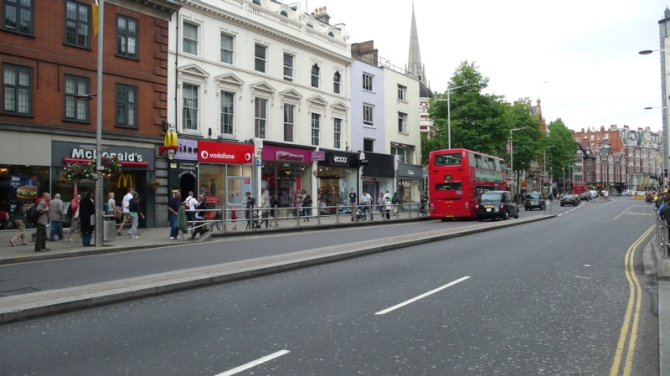An interesting new trend has emerged on the high street – while retail and leisure firms continue to invest in growth and open stores, banking chains are increasingly choosing to close branches or alternatively open concessionary outlets in existing retail premises.

This trend has continued this week with news that Vodafone will be busy in the commercial property market while RBS will be vacating a number of premises, primarily in rural areas.
Vodafone will invest £100 million in order to open a further 150 new stores throughout the UK, with the impetus for this decision seemingly being to reduce its reliance on third party retailers such as Carphone Warehouse.
At present, the mobile operator has fewer stores than key rivals such as EE and O2, but this move will take its store portfolio to over 500, overtaking O2 and allowing it to catch up with EE’s impressive 600 outlet total.
It is expected that the expansion will create around 1,400 new jobs and improve accessibility for customers, although not all locations have yet been confirmed. This is because Vodafone wishes to focus upon identifying areas in which rivals have a strong high street presence and those which do not yet meet the needs of existing Vodafone customers.
Chief executive of Vodafone UK, Jeroen Hoencamp, says; “We want to take this company back to growth.
“I’m aiming for a healthy mix of direct sales and partners, possibly fewer than we have today.
“We’re aiming to create a seamless customer experience.”
While Vodafone is determined to improve accessibility for customers, it seems that RBS is going in the opposite direction entirely by announcing the upcoming closure of 44 branches. 14 of these closures will impact heavily on consumers, as they are classed as the “last banks in town” and thus will remove the opportunity to visit a local bank for financial advice or support.
Seven of the closures will affect communities in rural areas of Scotland, while six are in England and one is in Wales. Although RBS insists that customers have been aware of the situation for several months now, and claims measures are being taken to ensure they are catered for, the plan directly contradicts a pledge made by RBS in 2010 to “stay open for business if we are the last bank in town, and consider a range of options to ensure a local banking service is available.”
A spokeswoman for RBS claims that the conditions of this pledge no longer apply as there has been a 30 per cent drop in branch transactions in the past four years. Instead, she insists that customers will be better served by alternative measures put in place which allow the bank to retain funds and streamline customer service.
She says; “Banking has changed significantly over the last few years as more and more of our customers are banking with us where and when it is convenient to them.
“We have to adapt to what our customers want, which is why we’re investing in a range of other ways our customers can bank with us, including online and telephone banking, our mobile app and in any one of the Post Office’s 11,500 branches across the UK.”